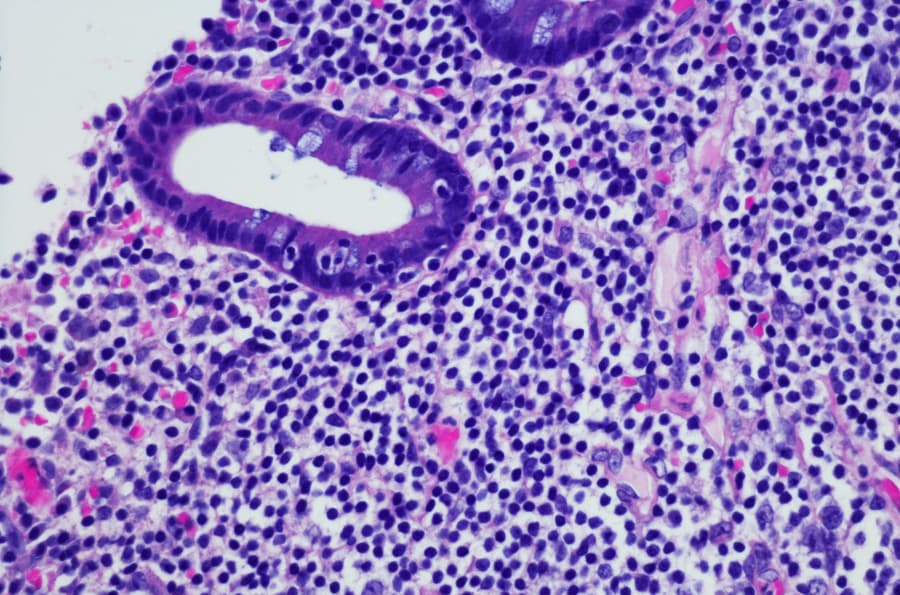
Deciding if Active Surveillance Is Right for You
If you or someone you know has been diagnosed with cancer, it might seem counterintuitive to pass on treatments like surgery, chemotherapy, or radiation. However, Learn more
HIPAA Alert: Potential Data Breach Learn More
Questions on Oncology, Hematology and/or Infusion Clinical Services due to COVID-19 Crisis – CALL 833-698-1623
Important Information for Our Patients Regarding the Coronavirus.
RCCA Providing Area Cancer Patients with Access to Care During Coronavirus Outbreak
RCCA Offering Patients Virtual Visits During Coronavirus Pandemic
Lymphoma is one of the most common cancers worldwide. It develops when a patient’s white blood cells become cancerous, and because these cells travel throughout the body, the cancer can spread quickly to other organs.
Fortunately, lymphoma is highly treatable, and the expert oncologists/hematologists at Regional Cancer Care Associates are experienced in treating this disease. With locations throughout New Jersey, Connecticut, Maryland, and the Washington, DC area, we can provide an accurate diagnosis and effective treatment to arm patients for their battle with lymphoma.
More than 20 different types of lymphoma have been identified. These types can be narrowed down to three broad categories that account for most lymphoma cases, including:

While the rate of lymphoma occurrence is increasing, doctors still don’t know all the causes. Some theories suggest certain kinds of lymphoma are caused by viruses, but this hypothesis is unconfirmed. Researchers have identified some factors that may increase patients’ risk, including:
Lymphomas of all types are associated with similar symptoms. Some common signs include:
Keep in mind that these symptoms could suggest many conditions other than lymphoma. Always speak with a doctor for an accurate diagnosis if you or a loved one experiences concerning symptoms.

As with any disease, early diagnosis of lymphoma increases the chances of successful treatment. There is no single screening test for lymphoma. Rather, your doctor will check for swollen lymph nodes and swelling and may run one of the following tests:
Different types of lymphoma are treated differently, and some can be cured. Hodgkin lymphoma is curable in many cases – especially if caught in the early stages – through the use of chemotherapy, radiation therapy, or both. High-grade non-Hodgkin lymphoma can sometimes be cured in the same way. Low-grade non-Hodgkin lymphoma, however, can only be fully cured with a bone marrow transplant.
At Regional Cancer Care Associates, we are dedicated to delivering the highest quality and most comprehensive treatment. We’ll work with you to help fight your lymphoma diagnosis and achieve the best possible outcome. To learn more about lymphoma diagnosis and treatment New Jersey, Connecticut, Maryland, and the Washington, DC area, contact us today.

If you or someone you know has been diagnosed with cancer, it might seem counterintuitive to pass on treatments like surgery, chemotherapy, or radiation. However, Learn more

Two Connecticut-based medical oncologists at Regional Cancer Care Associates (RCCA) have been included in the 2024 edition of the prestigious Castle Connolly Top Doctors list. Learn more

Leading cancer care provider Regional Cancer Care Associates (RCCA) is proud to announce that it will be adding a new location in Edison, N.J., with the joining of long-standing, Edison-based practice Oncology and Hematology Associates of Central Jersey PA into the RCCA network of facilities, effective Jan. 1, 2022. Learn more
When standard cancer treatments aren’t providing the results you want, clinical trials may offer hope. Our physicians use clinical trials to study new treatments, helping transform cancer care for the better. You can enroll in a clinical trial to try groundbreaking treatment plans at zero cost to you.

Regional Cancer Care Associates is one of fewer than 200 medical practices in the country selected to participate in the Oncology Care Model (OCM); a recent Medicare initiative aimed at improving care coordination and access to and quality of care for Medicare beneficiaries undergoing chemotherapy treatment.